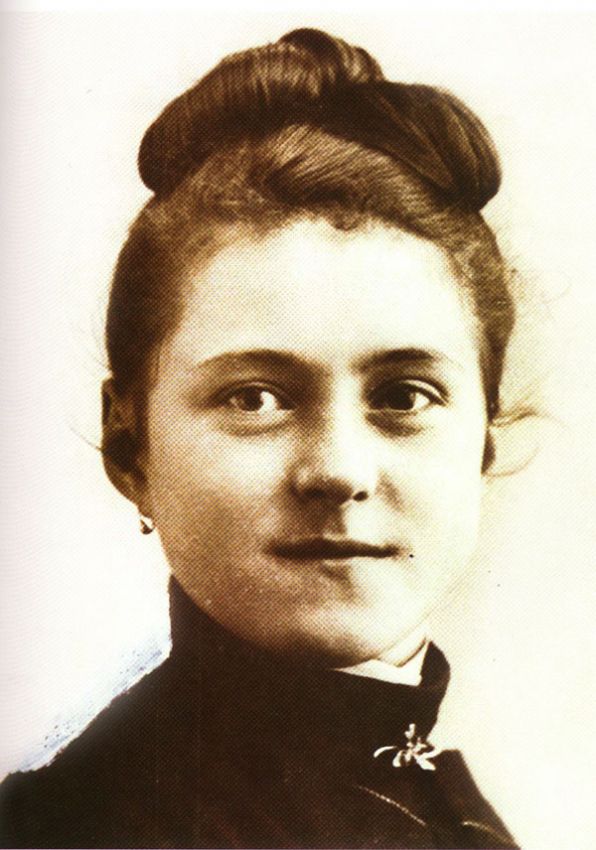
Doctor of the Church, Patroness of Missionaries, Priests, and of People Who Fall Asleep While Praying
St. Thérèse of Lisieux
No one would have ever guessed that this hidden and humble “Little Flower” had an unbending will of pure steel and the bold heart of a warrior. Yet anyone who reads her biography, “The Story of A Soul” will find themselves inspired by her confidence in God’s ability to make a great saint out of anyone, even the littlest members of the Christian family. The life of this Doctor of the Church had its humble beginnings in the household of Blessed Louis and Zélie Martin, who had nine children. Only five daughters survived childhood, the youngest being Thérèse. Her mother died when she was the tender age of four, and in her absence, her father and older sisters pampered Thérèse with loving affection. She quickly became the “little queen” of the house.
One by one, her sisters left their family home and entered religious life; the separation was a great source of suffering for the littlest Martin sister. But even at a very young age, the Lord, in His gentle way, began His work in her soul and drew her to Himself. At the age of 13, Therese had a powerful moment of conversion that transformed and deepened her faith, and she was convinced that the Lord was asking her to be exclusively His. She longed to enter Carmel with her sisters. She asked to enter at 15 years old, but since she was under the age limit of acceptance, she was denied entrance by both the convent superior and the Bishop. Not one to take “no” for an answer, feeling the urgency of God’s call, Therese went so far as to beg Pope Leo XIII in person during her trip to Rome for permission to enter. She had to be escorted out by the guards! Eventually the superiors gave in, and she entered Carmel when she was 15 years old. She spent the next nine years of her life in the monastery and died from tuberculosis at the age of 24 in 1897.
“I understood that every flower created by Him is beautiful, that the brilliance of the rose and the whiteness of the lily do not lessen the perfume of the violet or the sweet simplicity of the daisy. I understood that if all the lowly flowers wished to be roses, nature would no longer be enamelled with lovely hues. And so it is in the world of souls, Our Lord’s living garden.”
Many saints are known for their great heroic acts of virtue. But we can be consoled by the example of this great saint, whose heroism consisted of the little sacrifices of everyday life. She sought to serve her Sisters in hidden and little ways, forgetting herself in quiet acts of love. “Love proves itself by deeds, so how am I to show my love?” she asked. “Great deeds are forbidden me. The only way I can prove my love is by scattering flowers and these flowers are every little sacrifice, every glance and word, and the doing of the least actions for love.” Her deepest ambitions were to become a great saint, but it always felt like the difference between her and the great saints was insurmountable. But like a beloved daughter who looks up at her Dad with an air of expectation, knowing that he will give her what she asked, she trusted that God would not inspire a desire in her that He would not give. Her childlike trust and total confidence in Him led her to be undaunted by her littleness and weakness, because, “in spite of my littleness, I can aim at being a saint. It is impossible for me to grow bigger, so I put up with myself as I am, with all my countless faults”. She entrusted herself to Jesus, who she knew would mold her into a great saint; “The elevator which must raise me to heaven is your arms, O Jesus, and for this I have no need to grow up, but rather I have to remain little and become this more and more.”
Feast Day: October 1

